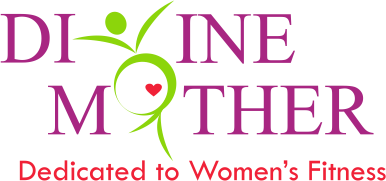
- September 17, 2021
- Comments: 0
- Posted by: Dr. Anushri Shah

Breastfeeding moms are often concerned that what they eat will have an impact on their child. You don’t need to follow a specific diet, but you should be aware that little amounts of certain foods and beverages may affect your breast milk and cause breastfeeding problems.
What You Intake Can Affect!
Almost every component in your blood will make its way into your breast milk. This happens in little quantities most of the time, but it might upset your baby’s stomach or make them drowsy or cranky. The effect on your child will be determined by their age and health, as well as the sort of substance, how much you take, and when you take it.
If you’re unclear whether or not you should consume something while breastfeeding, consult your doctor or you should join a post delivery fitness program which can help you.
Medication
The majority of medications are safe to use while breastfeeding. Even if the drug does enter into your breast milk, it is typically in such a little amount that your baby will not be harmed. However, get guidance from your doctor or pharmacist. If your kid was born prematurely, is unwell, or is on medicine, take extra precautions.
 Diet
Diet
Your body will produce healthy breast milk regardless of the meals you consume. You’ll be able to make enough milk if you eat a balanced diet and drink enough water. Many breastfeeding mothers may find that eating galactagogues (foods that are said to increase milk production, such as fenugreek) is ineffective.
Because breastfeeding burns a lot of calories, you might need to eat a bit more than usual. Make sure your diet has sufficient protein, iron, and calcium. You might need to take an iodine supplement as well.
Some foods, such as spices, garlic, beans, or cabbage, might cause a breastfeeding mother’s infant gassy and unpleasant. Diet is seldom the culprit, however if your baby is fussy every time you consume a certain food, avoid it. While feeding, there is no need to avoid allergic foods like peanuts, eggs, or milk.
If you’re unsure whether or not you should eat while nursing, you should enrol in a post delivery fitness program, which will undoubtedly benefit you.
Alcohol
Your breast milk has the same quantity of alcohol as your blood. After 30 minutes to 1 hour of drinking, alcohol enters your breast milk. Each normal drink takes around 2 hours for your body to get rid of the alcohol.
While feeding, it’s advisable to keep alcohol to a minimum. Unless you do have an occasional drink, feed your baby first and extract milk for the infant to consume whereas the alcohol is already in your breast milk.
Smoking
If you’re breastfeeding, it’s better not to smoke. If you are unable to stop, breastfeeding is still preferable than not nursing for your kid. About 1.5 hours after each cigarette, the quantity of nicotine in your breast milk is half. So, if you’re going to smoke, do so soon after you’ve had a breastfeed. The more time that passes between a smoke and the next meal, the better.
It’s critical to keep your infant safe from passive smoking, often known as secondhand smoke, which can cause lung infections, asthma, and Sudden Infant Death Syndrome. In the house or in the car, don’t smoke around your infant.
Caffeine
Caffeine might make your infant restless if it passes through your breast milk. Caffeine-containing meals and beverages, such as tea,soft drinks, coffee and energy drinks, should be avoided. Caffeine sensitivity is very high in newborn infants.
Caffeine levels in breast milk typically peak around an hour after you eat it. While nursing, you should not consume more than 300mg of caffeine each day.
Others Complementary Medications
Vitamins, herbal preparations, aromatherapy, and homoeopathic medications are examples of complementary treatments. Complementary medications, like conventional drugs, might cause adverse effects. If you’re breastfeeding, don’t assume that complementary and herbal medications are safe because they haven’t been well studied.
Need More Advice!
Every pregnancy and delivery is different, which is why Divine Mother provides a customised programme for each mother to help them improve their postpartum nutrition.
Dr. Anushri Shah and her well-trained staff offer a Divine Mother Post Delivery Fitness Program; register now! Please contact us for further information.

